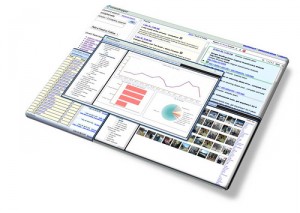To start the post off, the basis for my thinking comes from a presentation and resulting conversation by Jesse Hirsh from Metaviews regarding “The Future of Authority” given at the Academy of the Impossible. This presentation consisted of brief look at how we as a society currently view authority and how this affected the events of the past year. As part of this discussion a comparison of the current thinking of online influence against the idea of authority caught my attention because it was directly relevant to what is currently being done in terms of marketing products online through social channels as well as to the whole idea of individual influence and its measurement (example: Klout).
What I took away from the presentation is that the concept of being influential vs. being authoritative is the difference between generating awareness of a specific topic vs. generating action on it. When you are ‘influential’ the information you share has a larger reach than the average person. This is in comparison to being considered an authority where a person’s audience is likely to place trust into and act upon the information they distribute. To put it even more simply you can say that one person is really good at sharing a message but the other is trusted enough to have their message actually listened to.
After considering the difference between influencer vs. authority the question then becomes why do marketers place so much emphasis on influence? When the supposed promise of social media is to reach the most targeted audience as possible why is the focus still on the more traditional ‘pay and spray’ approach? My inference is that the focus is still very much on being able to see how many eyeballs an effort can generate (something tangible) vs. reaching someone with authority and the change in opinion/potential for future sales generated by those that trust them (something not as easily measured). To not be active in reaching those with authority though is something I find puzzling as isn’t the end goal of marketing to generate sales rather than have users simply know about your product?
To conclude I’m not saying that marketers should do away with influencer outreach as awareness generation is still important. When considering where marketing dollars are going though it is also important to consider if you can use your limited resources to positively change people’s minds about your product than simply having people exposed to it. To keep this post from going overboard I’m completely disregarding the implementation aspect of taking such actions for now (I’m thinking about it!). Watch for a post on that topic to come up very soon! I’m interested in what others have to think about this topic though. If you have an opinion feel free to share it in the comments or by sending a tweet to @kevrichard.
